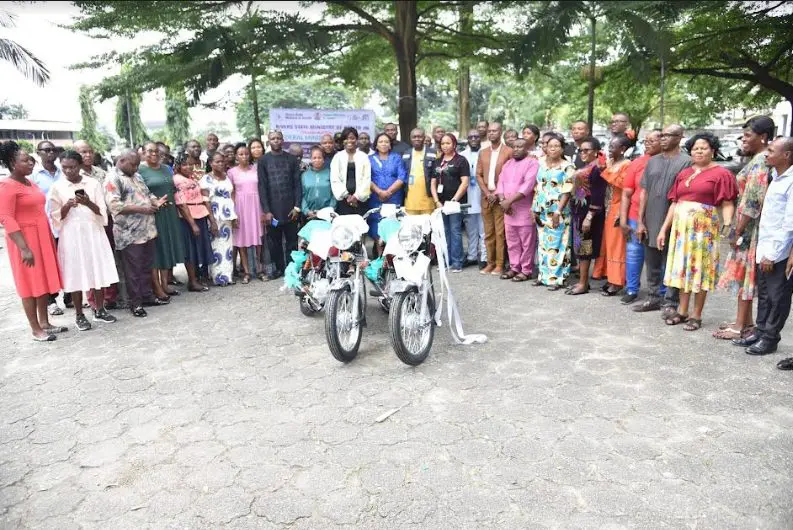The Cross River State Government has officially flagged off the distribution of 36 motorcycles to health workers across the state’s 18 local government areas.
The initiative, unveiled in Calabar by the State Commissioner for Health, Dr. Henry Egbe Ayuk, is a strategic intervention aimed at scaling up TB case detection and strengthening integrated primary healthcare delivery. Each LGA is receiving two motorcycles—one dedicated specifically to TB service delivery, and the other for broader healthcare outreach, especially in remote and hard-to-reach communities.
Dr. Ayuk, while handing over the motorcycles, was flanked by the Director General of the State Primary Healthcare Development Agency, Dr. Vivien Otu. He issued a firm directive that the vehicles are strictly for official medical use and warned that any misuse, including using them for personal errands, political gatherings, or leisure activities, would attract serious sanctions.
“These motorcycles are not for market runs or private errands. They are assets meant for fieldwork—tools for the health sector, not for political showmanship,” Ayuk declared.
Read also: Egbetokun launches safe school protection squad in Delta
He cautioned local government officials against attempting to reassign the motorcycles for non-health-related purposes, emphasizing that the move is critical in ensuring healthcare workers reach patients in isolated areas where TB cases often go undiagnosed or untreated. The commissioner also stressed that only field-ready personnel should be entrusted with the motorcycles.
“If you’re not mobile or willing to work beyond your clinic’s walls, then you’re not the right person for this task,” he said, underlining the need for result-driven implementation.
Dr. Ayuk applauded Governor Bassey Otu for prioritizing healthcare infrastructure and commended the Global Fund and the Federal Ministry of Health for their technical and logistical support in the ongoing national and global efforts to eliminate tuberculosis by 2030.
The rollout is part of a broader campaign to end TB in Nigeria, where access to early detection and treatment in rural communities remains a pressing challenge. With over 300,000 new TB cases estimated annually across the country, Cross River’s approach could serve as a model for other states seeking to bridge the healthcare access gap and combat infectious diseases at the grassroots.






